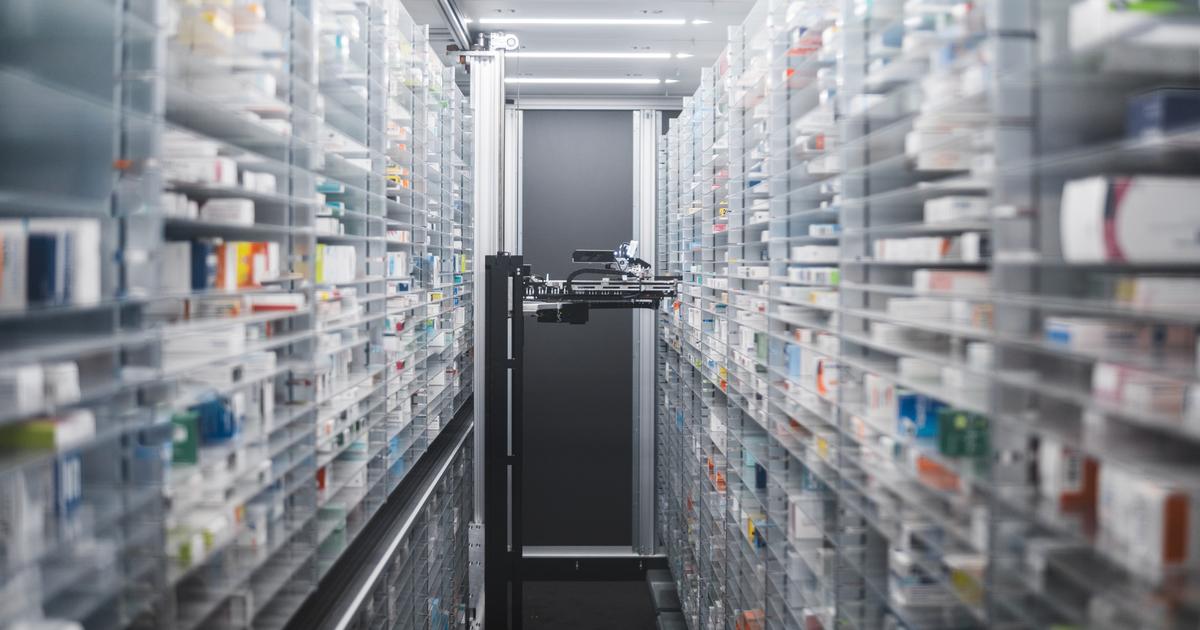Pierre-Yves Chambrin, hospital pharmacist at AP-HP, works in the Pharmaceutical Evaluation and Proper Use Department of the General Agency for Health Equipment and Products (AGEPS). He is a member of the National Academy of Pharmacy.
From compresses to scanners, medical devices (MDs), non-medicinal products intended for human health care, are very varied.
Many are high technology, complex in composition (including precious metals) or have a high unit price.
In France, their financial weight is around €30 billion, mainly borne by the community.
A significant proportion are called “single use” (DMUU): they are designed to be used only on a single natural person during a single medical or surgical procedure, most of them being presented sterile.
This characteristic guarantees a high level of requirement in terms of quality of care, hygiene and risk of infection, which must not be forgotten.
But this also has disadvantages, notably the production of a large volume of waste or the use of rare resources such as certain metals.
Environmental and financial awareness has therefore led to the question of their future, particularly the possibility of their reuse.
Certain interest groups have been campaigning in this direction for several years, in vain due to lack of convincing evidence.
Also read: When health takes its carbon footprint
New European regulations
A new European regulation gives the possibility of authorizing the reprocessing of DMUUs within a very constrained regulatory, technical and security framework.
This process must, from a used DMUU, guarantee the restoration of its technical and functional safety characteristics.
The reprocessed DMUU must therefore be as safe and efficient as the original DMUU.
This possibility is subject to three essential conditions: the eligibility of the MD, that is to say its capacity to undergo reprocessing without damage;
the technical capacity of the manufacturer to follow very restrictive processes (at present in Europe, this is the case of only one manufacturer, located in Berlin);
and the complete freedom of each Member State to authorize or not the reprocessing of DMUUs.
To date, six European countries authorize it but only two actually apply it, under conditions that are difficult to really know, and fifteen ban it, including France*.
The French public authorities consider that there is a lack of sufficient guarantees in terms of health safety and that the data available on the ecological or economic impact of reprocessing is insufficient.
It should be noted that this will only allow two or three reuses at best in most cases, and that it itself has a cost and an ecological impact.
A European investigation into the expected impact of reprocessing is underway, the results of which should be published very soon: they should provide a clearer vision of the situation.
A few other countries in the world practice reprocessing, but the results are only known by the associations of “reprocessors” without it being clear what the precise conditions are or the legislative and regulatory context.
An experiment carried out in France
France has nevertheless decided to make an experiment possible as an exception, as part of the “Ecological planning of the health system” announced in May 2023. The stated objective is to define a legal framework and good practices guaranteeing safety. care, and to set up a French reprocessing sector.
This measure must be the subject of legislative and regulatory provisions (LFSS 2024 - art. 66, decree, order), supported by a mission from the IGAS to clarify its feasibility and methodology.
The experiment must begin no later than November 2024, for two years with an initial assessment at six months, in a few designated health establishments and according to defined circuits (knowing that reprocessing within health establishments will not be authorized) .
The decree will specify the DMUUs that can be reprocessed, the restrictions, the methodology (objectives, modalities, management, reporting) and, importantly, the conditions for informing and obtaining consent from patients.
Other questions will have to be asked, such as changes in practice, the design of reusable MDs, better waste recovery or even acceptability by patients, public authorities and practitioners.
In practice, very restrictive rules
Some clarifications are necessary:
The reprocessing of prostheses and implants is explicitly excluded from the outset by the regulations.
Under no circumstances will a patient be offered a hip prosthesis or a pacemaker that has already had a first life in another patient.
The technical conditions for reprocessing a DMUU are very restrictive: for example cleaning and sterilization, or restoration of the initial characteristics, the control of which is imperative.
The DM must not be degraded under any circumstances.
Some DM could in theory be reprocessed but without this presenting the slightest financial or ecological interest.
We are therefore not talking about reprocessing single-use syringes, for example.
It is up to the manufacturer to decide, under his responsibility and within the framework of a new CE marking, what he is able and willing to do.
Furthermore, it should be remembered that the patient's consent is an obligation.
The field of eligible MDs is therefore quite limited, particularly in the context of the experiment.
Today we mainly cite certain catheters used in interventional cardiology (long and very thin tubes, inserted into a vein and intended to carry out certain procedures or examinations relating to rhythm disorders).
We therefore see that the “valves” are not opened recklessly and that, without the door being closed, the health safety problems linked to reprocessing are truly taken into account.
The National Academies of Medicine, Pharmacy and Surgery jointly support this approach which will allow us to see things more clearly.
We will see the results...
*European countries that authorize the reprocessing of medical devices are Germany, Belgium, Croatia, Ireland, the Netherlands and Sweden (but only Germany and Belgium actually practice it). Currently prohibiting reprocessing are France, Italy, Denmark, Greece, Austria, Norway, Cyprus, the Czech Republic, Estonia, Finland, Latvia, Lithuania, Malta, Romania and Slovakia.

